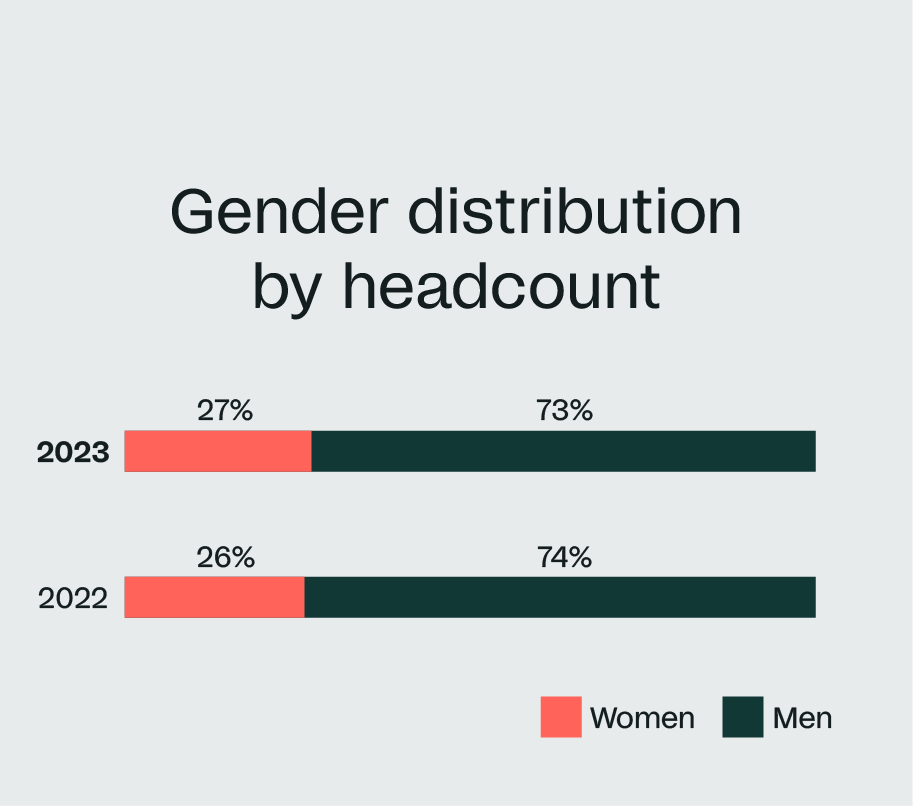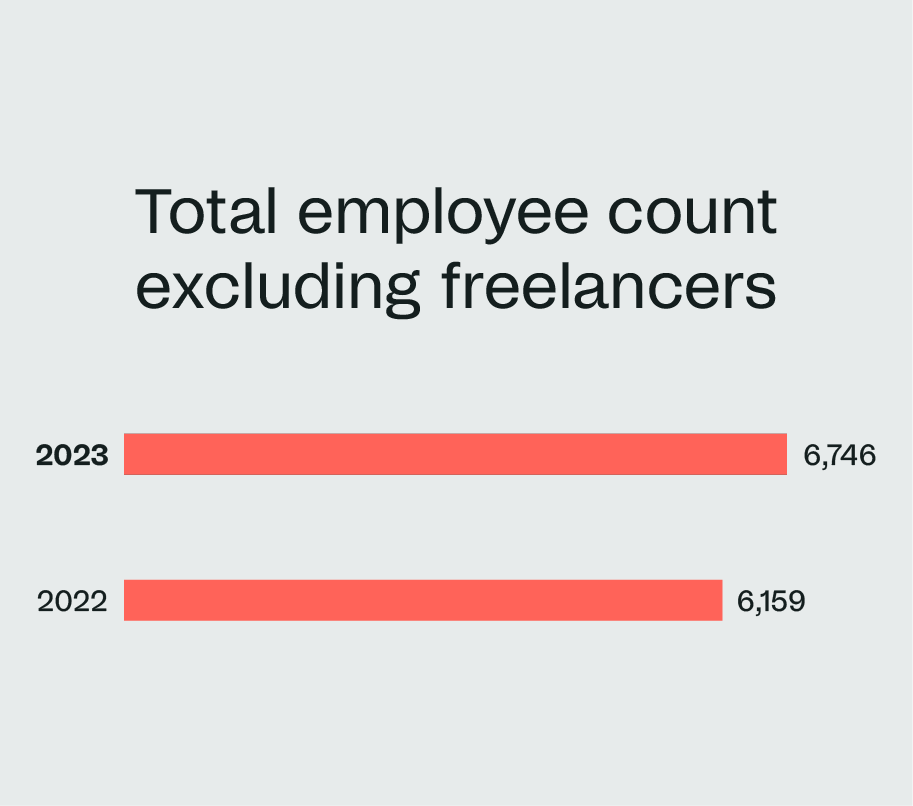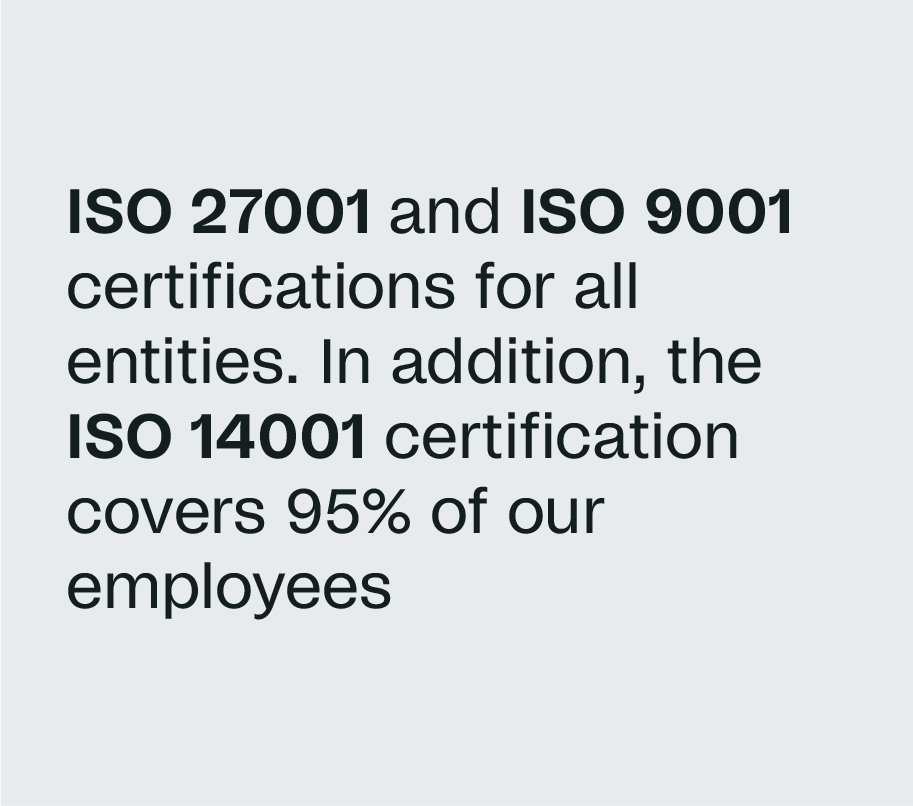Priorities related to model and strategy
We offer IT solutions, products and platforms, helping our clients in their digital transformation journey. Combining our industry expertise, well-established methods, and our commitment to responsible digitisation, we contribute critical IT solutions to society and businesses across Europe.
Our value chain relies on components such as IT and data centre equipment, software licenses, and human capital. As such, our most important focus areas, include:
- Our carbon emissions and energy mix
- Resource use and circular economy
- Our people
- Governance and business conduct
- Civil society and end-users










